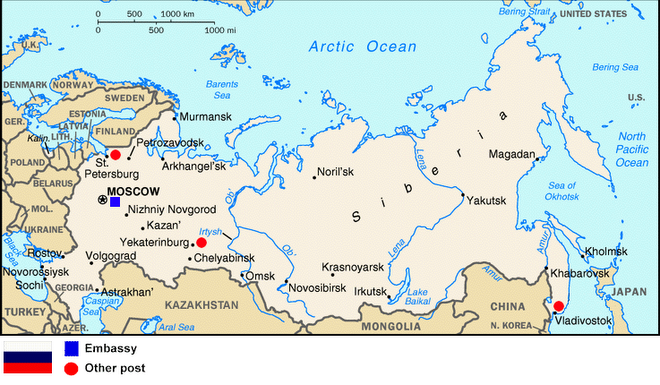That’s what we’ve been saying.
I wonder whether the issue isn’t more complicated now?
Elitny Russia has been watching, if not with slackened jaw, then certainly with a discreet sparkle-in-the-eye and mild acid-reflux, two apparently connected issues. The Oleg Shvartsman debacle and the apparent crashing and burning of the President of Rosneft.
Until a week or so ago, it is doubtful if even his mother gave much thought to the business dealings of Oleg Shvartsman. But then he gave an interview to Kommersant (link to ENG version) and, boy!, did that change.
The interview seemingly lifted the lid off of a whole scam by Kremlin-insiders, Putinisti-to-the-bone to be sure, but ones likely to be losing political power after VVP’s term ends May 1st next year (the election, as was recently confirmed, will be 2nd March).
What was remarkable about the Kommersant interview was how brazen was the thinking behind the ‘velvet re-privatization’. Some excerpts follow:
“It is very impressive for a little-known company. So, do you own or manage it all?”
“Both. Yet, it is much intertwined: we are closely affiliated with some political figures, and we manage their assets. We are related both to the presidential administration and to its power bloc...
“The true ownership structure is not disclosed, isn’t it?”
“There are various off-shores, in Cyprus and other countries...There are individuals among them, all relatives, from FSB or SVR.”
“What are other political connections involved?”
“...our colleagues from FSB decided there should appear an organization which would bend, bow, torture, and impose social responsibility on all sorts of Khodorkovskys…”
“A kind of ‘collective wringer’?”
“Right. It has all power ministries among its trustees: the Defense Ministry, the Emergency Situations Ministry, and the Interior Ministry. However, executives and directors changed because there were conflicts and feud. For instance, someone would press down a major businessman. He would make a phone call or two, and everyone would say: “Stop, wait”. So, it became clear the instrument isn’t working, because every tycoon has relations with the same power agencies. Consequently, the concept was altered; no one wanted to argue, and we were asked to find a new function for the organization.”
“What is the direction in which you plan to develop?”
“We now develop a structure which is to transform into a state corporation soon. It will be called Social Investments. It is based on the ‘velvet re-privatization’ concept which we developed together with the Russian State Service Academy and the National Economy Academy....
“What does it look like?”
“Like a vacuum cleaner, that gathers the assets for a structure which later becomes a state corporation...
“So, you have actually received a sort of authorization for carrying out corporate raids with using the power factor?”
“These are not raids. We do not take enterprises away. We minimize their market value by means of various instruments [like the tax police, the environmental regulator, the consumer regulator...oh yes, like in Lukoil, Total, Shell, TNK-BP etc: Exile]. As a rule, these are voluntary-coercive methods. There is the market value, the mechanism to block its growth, and, certainly, various administrative levers. However, people usually figure out where we come from…
“Are these people satisfied… or do they object?”
“No, why should they. We all live without bodyguards. In fact, everyone understands that it is our state task, that we’ve been commissioned with doing it. Unless we do it, others will come, and they will be carrying out the function of consolidating assets in the state’s hands just like we are doing it now, because it is the current state policy.”
Yes, I of course know that is the state's policy, but it isn't nice to have it rubbed in our faces so. People who know me have, on occasion, accused me of being chorus boy and cheerleader for the Russian govenrment. Well, after reading that interview, let's just say that, for a day or so, I was pretty mute.
The interview went around the Russian blogosphere in same morning and the power-elites have been discussing little else ever since. Kommersant is even threatening to sue the hapless Shvartsman for his desperate fight-back that he was radically misquoted.
At the same time, in the second case, we have the allegedly imminent ousting of Rosneft President Sergei Bogdanchikov. Apparently, the rumour goes, Rosneft Chairman, Putin confidante and old KGB insider, Igor Sechin wants Bogdanchikov’s job. Personally that sounds to me like asking J Edgar Hoover to be CEO of ExxonMobil…nah; he wore a dress and was not so scary…but it is more like asking Robespierre to be CEO of Total.

Rosneft has had a disappointing share price run recently and hasn’t benefited from the epic oil prices of recent months (the graph shows Rosneft’s share price - rebased to 100 from its IPO - and relative to the main global oil & gas index). Russian oil stocks have lost out – because the higher the oil price – the bigger the slice the state takes. On one level, that is sensible (because oil price is not controlled by management, so why reward management for something they didn’t achieve themselves). On the other hand, right now, the lower returns on Russian oil companies means that – globally – the Russian oil sector is, bizarrely, less attractive a place to invest that fiscal regimes with a standard flat hydrocarbon extraction tax.
I am not sure that these maneuverings aren’t really just the sign that some key political figures, having loyally served VVP, are now looking to monetarize their government connections and experience. Like Prime Minister Blair’s book deal. Of course, this being Russia, the numbers are bigger, and the connection between business and politics….well, it is not so pretty.
It does, though, beg the question. With this ‘velvet re-privatization’ in place, what is to stop the entourage around the next President from shifting the industrial wealth of Russia into their hands?
If they do that, just how tough with the Team Putin crew be then?
And how reliable the current power elties?
PS: word reaches me that two of the suggested Presidential successors, 1st Deputy Prime Ministers Dmitri Medvedev and Sergei Ivanov are both appalled by what Sechin & Co are doing and may actually be keeping a rather chilly distance from VVP. Incredible if true. Perhaps it is time to remind ourselves that, like financial markets, history does not move in a straight direction.





1 comment:
I keep wondering what makes you stick to using this notion of 'Team Putin'? Do you think there is something that consolidates this 'team' apart from Putin being IN the office, and once he is OUT the team would not fall apart and race against each other to swear allegiance to the new sovereign?
Post a Comment